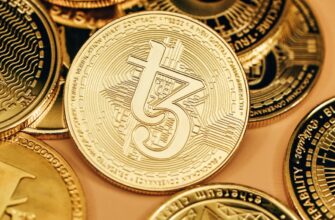Understanding NFT Taxation in the UK
Non-Fungible Tokens (NFTs) are treated as capital assets by HM Revenue & Customs (HMRC) in the UK, similar to cryptocurrencies or stocks. When you sell an NFT for more than you paid, the profit is subject to Capital Gains Tax (CGT). This applies whether you’re an occasional trader or a professional creator. HMRC’s stance is clear: NFT transactions aren’t exempt from tax obligations, and failure to report profits can result in penalties. Key principles include:
- NFTs are not considered currency but taxable assets
- Tax applies to profits from sales, trades, or even gifts in some cases
- Losses can offset gains but must be reported
When Do You Need to Report NFT Profits?
You must report NFT profits if your total taxable gains exceed the annual CGT allowance (£3,000 for the 2024/25 tax year). This includes gains from all chargeable assets—not just NFTs. Exceptions exist if profits fall below this threshold or qualify for tax reliefs. Critical triggers for reporting include:
- Selling an NFT for more than its acquisition cost
- Exchanging NFTs for other crypto/assets worth more than your original investment
- Gifting NFTs where market value exceeds cost (with some exemptions)
- Earning over £1,000 from NFT trading (may qualify as self-employment income)
How to Calculate Your NFT Gains Accurately
Calculating gains involves three core components: disposal proceeds, allowable costs, and acquisition expenses. Start by determining your profit using this formula:
Gain = Sale Price – (Purchase Price + Allowable Costs)
Allowable costs reduce your taxable gain and may include:
- Original NFT purchase price (including gas fees)
- Transaction fees from marketplaces like OpenSea
- Wallet transfer costs directly linked to the transaction
- Professional valuation fees (if required)
Always use pound sterling values at the transaction date. For crypto-to-NFT trades, convert crypto value to GBP using exchange rates from reputable sources like the Bank of England.
Step-by-Step Guide to Reporting via Self Assessment
Report NFT profits through HMRC’s Self Assessment tax return. Follow these steps:
- Register for Self Assessment by October 5th following the tax year of your gain (deadline: January 31st for online submission).
- Complete the Capital Gains Tax summary (SA108 form) alongside the main SA100.
- Detail each NFT disposal in the ‘Other property, assets and gains’ section, including dates, descriptions, proceeds, and costs.
- Calculate total gains minus losses and apply your CGT allowance.
- Pay owed tax by January 31st deadline (rates: 10% for basic-rate taxpayers, 20% for higher/additional-rate).
Keep digital records for at least 6 years, including wallet addresses, transaction IDs, and exchange statements.
Common Mistakes to Avoid When Reporting
Avoid these pitfalls to prevent HMRC inquiries:
- Ignoring small transactions – Even minor sales contribute to your annual gain total
- Forgetting gas fees and platform costs – These reduce taxable gains
- Mixing personal and business activity – Frequent trading may require reporting as self-employment income
- Using incorrect exchange rates – Always use historical GBP rates from reliable sources
- Missing deadlines – Late filings incur automatic £100 penalties
NFT Tax Reporting FAQ
Q: Are NFT creators taxed differently?
A: Yes. If you mint and sell NFTs regularly, HMRC may classify this as self-employment. Profits are then subject to Income Tax and National Insurance, not CGT.
Q: Do I pay tax if I transfer NFTs between my wallets?
A: No – transfers between personal wallets aren’t disposals. Tax only applies when selling, swapping, or gifting to others.
Q: How are NFT losses handled?
A: Report losses on your SA108 form. They can offset gains in the same tax year or be carried forward indefinitely.
Q: What if I bought NFTs with cryptocurrency?
A: Exchanging crypto for NFTs triggers a CGT event on the crypto disposal. You must calculate gains/losses on both the crypto and NFT transactions.
Q: Can HMRC track my NFT profits?
A: Yes. UK crypto exchanges report user data under Crypto Asset Reporting Framework (CARF) rules. Always declare accurately.








